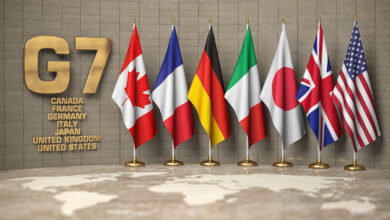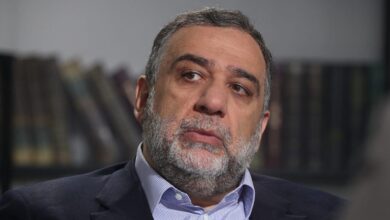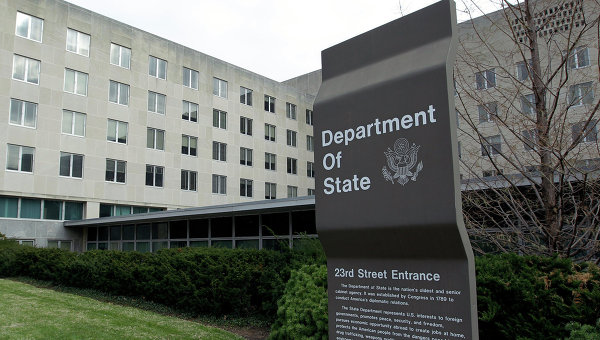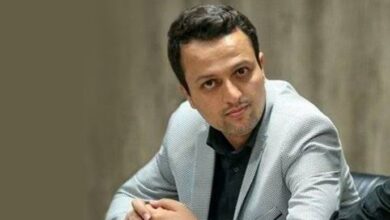Azerbaijan’s latest attacks have only come to demonstrate that, in the absence of proper accountability measures, policies of aggression are likely to continue and increase, Armenia’s Permanent Representative to the UN Mher Margaryan said in response to the statement of Azerbaijan at the general debate within the framework of the 77the session of the UN General Assembly.
“The latest military offensive unleashed by Azerbaijan earlier this month targeted the eastern and south-eastern regions of Armenia, causing more than 200 deaths including among the civilian population. At least 20 servicemen were captured, around 8000 people, mostly women, children and elderly are temporarily displaced,” he said.
“In flagrant violation of the Geneva Conventions and international humanitarian law, Azerbaijan has captured, tortured and killed a number of Armenian service personnel, among them several women, who were exposed to most despicable barbarities, including sexual assault, violent murders and mutilations. The atrocities have been video recorded, cheered and extensively celebrated over social networks in Azerbaijan. The massive amount of disturbing evidence pointing to the criminal conduct by the Azeri military is undeniable. It is ever more imperative that all acts of atrocities be fully investigated and perpetrators be brought to justice,” the Ambassador noted.
“Against the backdrop of brutal, senseless and completely unjustifiable violence unleashed against Armenia and the Armenian people, hearing Azerbaijan’s Foreign Minister flatly misstate from the General Assembly’s rostrum that his country “took adequate measures to neutralize threat against its sovereignty” and that “the armed forces of Azerbaijan demonstrated utmost restraint and professionalism” is nothing short of ludicrous. For all the talk about “provocations”, “threats” or any other pretext Azerbaijan has been trying to fabricate to justify the unjustifiable, the fact remains that there has been no actual armed attack by Armenia against Azerbaijan,” he added.
“At the emergency meeting of the UN Security Council convened on the 15th of September upon Armenia’s formal request, we heard the calls of the Council members, who have been loud and clear: the strikes inside the territory of Armenia are unacceptable; all military forces must urgently return to their initial positions, and a complete ceasefire must be unconditionally observed and respected,” Mher Margaryan said.
“The Council members were unanimous in their appeals: there can be no military or violent solution to the conflict. Twelve days after the Security Council meeting Azerbaijan is yet to heed the appeals of the Council’s members. The Azeri troops continue to remain inside the territory of Armenia, the PoWs are still in captivity, and military buildup continues on Armenia’s frontiers,” he added.
He noted that Azerbaijan’s latest attacks have only come to demonstrate that, in the absence of proper accountability measures, policies of aggression are likely to continue and increase. This must be stopped and condemned, at all levels.
“We heard the Minister of Azerbaijan say that “the conflict resolution efforts under the auspices of the Organization for Security and Cooperation in Europe yielded no results.” While we understand that blaming the mediation format has been and continues to be the convenient modus operandi for Azerbaijan, the truth is, that for many years, Azerbaijan has been consistently rejecting proposals for diplomatic settlement, in blatant disregard towards its pre-eminent obligation to strictly adhere to the principles of non-use of force or threat of force and the pacific settlement of disputes, as prescribed by the UN Charter,” the Permanent Representative stated.
“Instead, it sought to push for a deceptive, victim-blaming narrative as a purported justification for its long-standing objective to resolve the conflict by force and not through peaceful means. It is precisely for this reason that Azerbaijan has been so vehemently opposing any idea leading to the creation of internationally monitored verification mechanisms to identify ceasefire violations. Such measures, if established, would be instrumental to ending blame game and ending shooting and killing people on both sides,” he said.
Amb. Margaryan stressed that the claims that Azerbaijan resolved Nagorno-Karabakh conflict by force, and the attempts to erase the very name of this Armenian populated land are demonstration of something that attest to a profound crisis – a crisis of reason, of intellect and of the humanity, revealing, instead, nothing short of a policy of ethnic cleansing and clear genocidal intent.
“I am compelled to recall that it was precisely for such policy and that type of intent that the conflict erupted at first place, when the peaceful human rights aspirations of people of Nagorno-Karabakh were met with mass violence and pogroms of the Armenian population in Sumgait in February 1988 and in in Baku, Kirovabad and other cities early 90’s. Hundreds of Armenians living in Azerbaijan were killed, tortured and maimed, hundreds of thousands were deported,” he noted.
“It is, indeed, deeply disturbing, that, 30 years on, extermination of the Armenians and shedding Armenian blood continues to remain the easiest and fastest ways of achieving popular support in the neighboring country,” the Ambassador said.
“We heard the Azerbaijani Minister say that “Azerbaijan is resolute to re-integrate its citizens of Armenian origin residing in conflict-affected territories into its political, social, economic space, guaranteeing the same rights and freedoms with all the citizens of Azerbaijan.” We are well aware of the way, in which rights and freedoms are guaranteed in Azerbaijan, whose human rights record is well known to the world,” he noted.
Mher Margaryan recalled a few international rankings related to democracy and human rights in the neighboring country. According to the Press Freedom index by Reporters without Borders, Azerbaijan is ranked 154th and qualifies as a country where the entire media sector is under official control. The Freedom House qualifies Azerbaijan as “Not free” in its report on Global Freedoms, as well as Freedom on the Net Report.
Needless to recall the high-level corruption practice in Azerbaijan that has been periodically reported by the Organized Crime and Reporting Project as part of the Global Anti-Corruption Consortium, he said.
“We have heard the Minister of Azerbaijan speak in favor of the dispatchment of a UNESCO mission, while his country continues to deny the UNESCO’s access to the Nagorno-Karabakh conflict zone, in yet another manifestation of the intent to destroy the evidence of the Armenian civilizational presence in the region and in direct violation of the ICJ order on Provisional Measures. This policy follows Azerbaijan’s well-known pattern of committing cultural genocide, similar to the one perpetrated in the period of 1997-2006, when thousands of Christian Armenian monuments were intentionally destroyed and razed to the ground in Nakhijevan,” he said.
“Azerbaijan is yet to abide by its international humanitarian obligations vis-à-vis the Armenian POWs, as well as address the anti-Armenian rhetoric, including at the level of public officials and institutions, and commit, in good faith, to the preservation of the Armenian cultural and religious heritage, as rendered by the International Court of Justice through the Provisional Measures issued against Azerbaijan under the Convention on Elimination of Racial Discrimination in December 2021,” the Ambassador said.
“The Minister of Azerbaijan accused Armenia of “massive contamination by landmines and continued refusal to provide accurate and complete information on mined areas.” We have heard Azerbaijan’s assertions before, very often used as a pretext to justify armed aggression against our country. We have also seen that such assertions, bereft of actual evidence as they are, have little value in the court of law. As Armenia explained at the International Court of Justice while addressing a similar accusation last year, for decades, Armenia strived to complete a comprehensive demining process. However, Azerbaijan persistently blocked all such humanitarian efforts,” he continued.
“Armenia had a long record of working with the Organization for Security and Co-operation in Europe (OSCE) on demining-related activities, including through the OSCE office in Yerevan. Yet, it was Azerbaijan who forced the OSCE in 2016 to terminate those demining-related efforts. Moreover, Azerbaijan, through procedural manipulations, refused to extend the mandate of the OSCE office in Yerevan, so that the said office ⎯ which was the last OSCE field presence in the South Caucasus ⎯ had to close in 2017. It must be also noted that, in the context of resolving all outstanding humanitarian issues, Armenia has provided the maps of mined areas in its possession, despite the fact that it is under no legal obligation to do so. By contrast, this humanitarian gesture has not been fully reciprocated as Azerbaijan continues to deny the return of all the Armenian POWs and other detained persons currently held in captivity in Azerbaijan, in violation of the Geneva Conventions as well as the Trilateral Statement of 9 November 2020 on the establishment of ceasefire and cessation of hostilities,” the Permanent Representative stressed.
He noted that Armenia will continue to appeal to the United Nations and its respective bodies as well as to the relevant international actors to stand up to their responsibility for the maintenance of international peace and security and to resolutely condemn Azerbaijan’s criminal attacks against the territorial integrity of Armenia and its people, to call for unconditional withdrawal of the troops from the territories of Armenia, for immediate repatriation of all prisoners of war and other detained persons, and to uphold the norms of international law and the values of peace and humanity.








